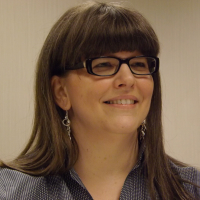Sexual assault is not a single-county, single-culture, single-anything issue, and just as the U.S. is struggling with revelations like that out of Steubenville and the number of sexual assaults in the military, so is Israel.In Israel’s case, many revelations revolve around the famous and powerful: Former President Moshe Katsav is currently serving a seven-year prison term for raping, sexually abusing and harassing three women; ex-Justice Minister Haim Ramon was convicted of sexual harassment; influential media figure Emmanuel Rosen was recently accused by 10 female colleagues of obsessive harassment and date rape; Tel Aviv District Court Judge Nissim Yeshaya said in court two weeks ago—while discussing the case of a young woman who was gang-raped at 13—that “some girls enjoy being raped.” Meanwhile, indictments for sex crimes in Israel’s military doubled in 2012. Haaretz reports:

In recent months, indictments on charges of sexual abuse have been filed against soldiers, officers and civilians employed on IDF bases. A civilian physician working for the IDF was indicted on charges of rape and sexual assault, an airman in the IAF was convicted of rape and sodomy, and a company sergeant first class in the 931st Battalion of the IDF’s Nahal Brigade was convicted of the sexual assault of female soldiers who served under his command.
Much like in the U.S., one result of the headline-grabbing news has been a sudden outpouring of personal stories. Early last month +972’s Dahlia Scheindlin, better known for her public opinion analysis, wrote a deeply angry and ultimately deeply personal column about the utterly mundane and often paralyzing reality of sexual harassment in women’s lives. After discussing just how well-known Rosen is for his skirt-chasing ways, she wrote:
ADVERTISEMENT
In fact, I don’t know where to start writing at all. Should I begin by giving a pithy description of the fascinating social media dynamics, the frenzied debates between the genders running on Facebook forums? Should I describe the defensiveness and anger of many men?
…Should it be the tales of trauma now being shared by an appalling number and range of women, an ever-spreading stain whose blackness and girth are still deepening and spreading?
…Or should I tell my own story?... No, I never complained to the workplace and I am ashamed I wasn’t able to prevent or redress those situations, instead of what I did: stew in my humiliation and the wreckage of my self-worth, built from the ground with my own sweat and blood. Confuse my rage at him with rage at myself, for not telling him to f*ck off, or even before that: for not projecting a personality so unfathomably wonderful that he could never countenance such disrespect in the first place.
Early this month, well-known literary critic and social commentator Ariana Melamed responded to Yeshaya’s comments in a column about her own rape at the hands of a family member at age 14. In searing detail, she told of being hugged, then forced to the muddy ground, then raped, then hearing the sound of her rapist’s satisfaction. “Slowly, slowly—God alone knows how—you gather your strength and go home, bleeding, on failing legs.”
Then this past Friday, journalist Sharon Shpurer (who has been among those covering the Rosen case) wrote in Haaretz:
It was when I was 11 and a half…. One of the teachers thrust his hands under my school shirt. He touched, he fondled, he stuck his tongue in and he kissed. A few minutes of resistance and it was over. Then it happened several more times. How many exactly? I don’t remember. The 24 years that have elapsed have already blurred the small details, the memories and the feelings.
…I didn’t do anything with this. I didn’t complain to the police and I didn’t tell anyone. Life went on and I kept it inside me. I was ashamed. Why was I ashamed? I don’t know. Maybe precisely because I didn’t complain and I didn’t talk. Maybe.
Shpurer writes about how hearing the stories from Rosen’s accusers, then other stories, and finally reading Melamed’s column, “gave me strength.”
Daylight is the best disinfectant and its role is not only to disinfect the soul but also to ensure that the topic does not fall off the agenda, and that young girls and boys will know they must not be ashamed and they must not keep silent.
…We need not necessarily involve the police or the courts, which will rummage in our psyches, our sexual habits and our degree of permissiveness…. What we do need now is just to spit it out, each of us her own story. To show, quite simply, that this is a nationwide plague.
During the time that I lived in Israel I spent several years as a counselor with the Tel Aviv Rape Crisis Center, and so have found myself sadly unsurprised by all of this news. Israel is a country like any country, and as in any country, 50 percent of Israelis live with the knowledge that their bodily autonomy may be violated at any given moment. One in every three Israeli women is a survivor of sexual assault.
What is surprising to me, and heartening, is that so many Israelis are talking about it. Daylight is the best disinfectant, and the sooner that Israelis and all people come to understand that sexual assault is a human rights issue of monumental proportions, the sooner all of our societies can heal from the pain we have long expected all women to simply shoulder.






